Pop culture history in the early-to-mid 2000s will entail the time millions of us having the infamous ringback ringtones. Of course we remember what they were: that quick snippet of music during the initial starting point of cell phone calls. Taking the place of the standard ringing noise that we have been accustomed to forever was now a small sampling of a song/clip for callers to hear while you waited to have the receiver to pick up or send you to voicemail. As the connection to my call for Loose Buttons own Eric Nizgretsky began, a rush of nostalgia came flowing up to the surface; the computer-generated opener stated, “Please enjoy this ringback tone while your party is reached” followed by vibrant classical music. “I’m one of the last few remaining people with the ringback tone,” Nizgretsky flippantly says. “It’s honestly more so that I don’t know how to get rid of it, but I’ve embraced it at this point.”
It’s the beginning stages of the lockdown in Queens during our phone conversation, and Nizgretsky has begun to notice the result. The streets are starting to become scarce, much like when they do during the Memorial and Labor Day weekends, he explained. NYC has always been home for the musician, taking a sabbatical during his college days at the University of Miami, where he studied music business and songwriting. While attending the university, he met two of his bandmates on campus and others. “We all knew that we wanted to be in New York,” Nizgretsky says. “We knew that this was the best market for the type of music that we were making. We made it happen…it’s home for us.” Following the release of 2017’s EP Sundays, Loose Buttons’ debut album Something Better and you hear the rawness of NYC influence. The garage’s rock-tinged music, produced by Gus Oberg (The Strokes, The Virgins, Public Access TV), exhibits lyrics that center on community and the healing power it brings.
When you were younger and growing up in New York, how involved were you in the music scene?
From an early age, I knew that I wanted to be a musician. I tried to get shows in New York, so I started going to promoters and venues to gain all the contact info, so I pitch my stuff. There was a venue way back in the day called Don Hill’s and there was a guy named Nikki Camp. He looked he was out of Guns ‘N Roses. For a twelve year old that was super intimating and try to pitch him your band so you can play in his venue (laughs). We played there fifteen times, and through then you start gaining the confidence and learning how to pitch yourself to these other venues. In the DIY scene, we started doing that and there was a venue called Muchmore’s (Brooklyn); they were putting on these DIY shows and were playing to work our way up.
You were getting into the music business long before college, it seems.
Oh, 100%. From the get-go, that was always an exciting aspect to me. New York has that entrepreneur vibe to it, and I sunk into that at an early age. It paved the way for the type of work that we do now. We love being able to control our destiny in that sense, like telling ourselves when we can put out music.
I enjoyed reading about how you and your bandmate Zach Kantor started writing songs when you were eleven years old. What type of songs was you two crafting then?
Shitty, shitty, fucking shitty songs (laughs). What we thought were making at the time was amazing. We had this song called “Finally” which was, in our opinion, a jam at that time. We thought that it was going to make it to the top of the charts; we were convinced that this song was going to take off at twelve years old. Boy, we were wrong (laughs); it was so bad that we didn’t even get in a talent show. We had to be so persistent with them and we wouldn’t take no for an answer, so they let us perform. I think that I wore an orange jumpsuit when I performed the song and the fans loved it. Since then, I knew that I needed to be raucous onstage and get the approval from fans that way.
Was that your first time performing in front of an audience?
That was the first time Zach and I performed in front of an audience. I was so comfortable being in front of an audience. From that moment on, we wanted to write songs; a bigger part of that is we wanted to evolve musically. We listen to so much music and we want to push ourselves to try new things, and that evolution has been since that moment.
With the writing, are you the primary writer, or is it collaborative?
On the lyrical front, I do most of the writing. As for the musical front, that stuff is so collaborative. It could be (bassist) Manny bringing in some demo that he worked on or (drummer) Adam holding a keyboard by the drum set and just wrote a beautiful melody, or it could be Zach coming in with an unreal chorus. Through all that, I start mouth some words that will make sense in the meanwhile; I am on the side writing poetry or lyrics. I go away and try to fit in those themes and ideas into the melodies that we were writing in the studio.
The lyrically content in Something Better feels that it centers on family and those you surround yourself with. Is that assumption pretty accurate?
Yeah, for sure. I think one thing about me is that I’m so blown away and so in love with my bandmates, my musical career, and my family. I’m the luckiest guy because I get to surround myself with such incredible humans. Through that, I started taking a look at the relationships that I hold dear to my life and emulating objects such as success and the industry. It’s a very relationship heavy record but in the sense of a love story.
Was it challenging to bring up specific types of feelings and emotions?
Definitely, but I think there’s a duty of a songwriter to rip off the varnish and get into what’s deep. That’s the part of being a lyricist, and those are things that I’ve learned and gotten better with crafting them. It’s a tool to help me get a better grip of my life, so in that sense I’m grateful that I can do that with my bandmates and bandmates let me try to figure it all out.
You and the band spent a substantial amount of time crafting Something Better. Was this course of action intentional?
It was a little bit. One-we knew that this was going to be our debut record, so part of that was we wanted to make sure it was right. Two-it takes us a little bit to figure out the direction that we wanted to take it. I don’t think we want to make a drastic change from what we are doing, but we do want to bring new elements and evolve as songwriters. I think that we did from Sundays to this album. Everything that we were writing wasn’t making sense until we wrote the song “Something Better.” When we wrote that song, all of a sudden we knew the record you wanted to make.
At what point did “Something Better” come to fruition? Was it during the beginning of the recording? The middle or end?
We pretty much scrapped everything until we wrote that song. When we wrote the song, everything else fell into place after that. We were too over the map. The reality is that right now we are writing the second album and we are over the map as well. We are hoping that there be a song like “Something Better” that falls on our lap – the ‘aha’ moment. “Something Better” was the ‘aha’ moment for this record; it quite literally was something better for us than what we were doing.
Was this refocusing of the album happening with Gus?
It was before Gus. We always wanted to write a majority of the record before getting a producer on board. We sent in the demo “Something Better,” and he was the one out of all of the producers we started to talk to really vibed with it the most. He came in with constructive criticism from the beginning, and we said, ‘That’s our guy.’
When I listen to the album, you can hear that NYC’s signature sound and Gus’ imprint.
Totally and we knew that we had to have that; we are a New York through and through. And the way we recorded the album, we were all in the room. Even Gus was in the room. That was really important. I think that it’s something that we may keep on exploring because there’s something about playing in front of everybody and staring into each other’s eyes while you are doing it.
What else did Gus help the band with while recording Something Better?
He very much curated the whole outro of “6:17”. He just let us do our thing, and he was very experimental. It worked out great.
Given growing up in NYC and finding your bandmates in college, do you ever wonder if you would be right now if you didn’t get those opportunities?
I think about it all-time in the sense that I don’t need a lot of space to make music. I need the energy to make music, and New York has that. It doesn’t allow me to stay passive, and that’s one of my biggest fear in life is becoming passive.


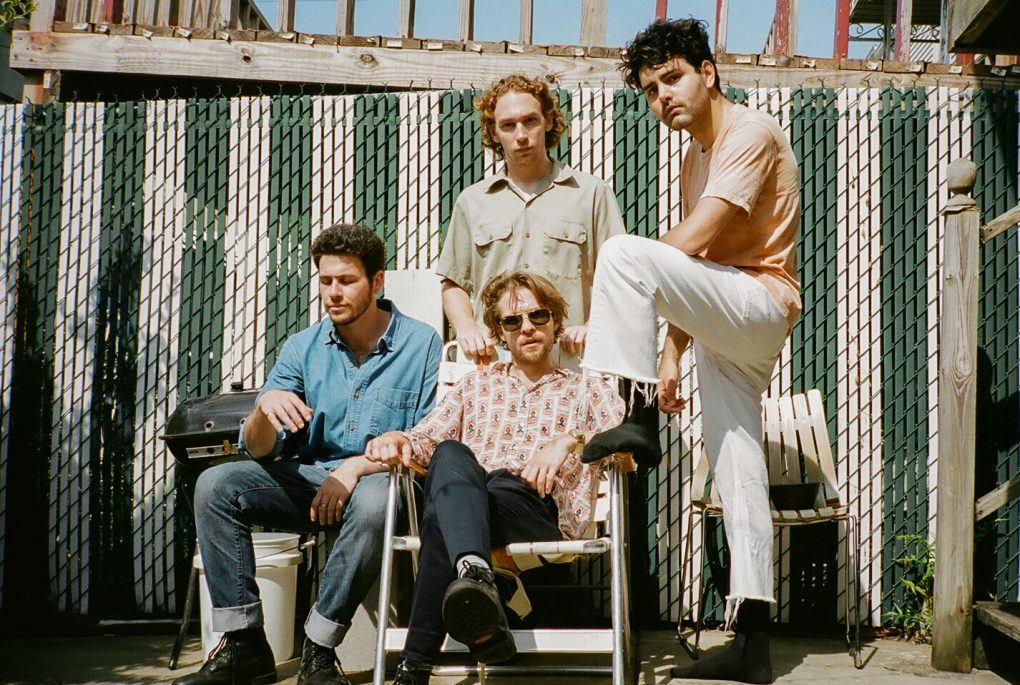
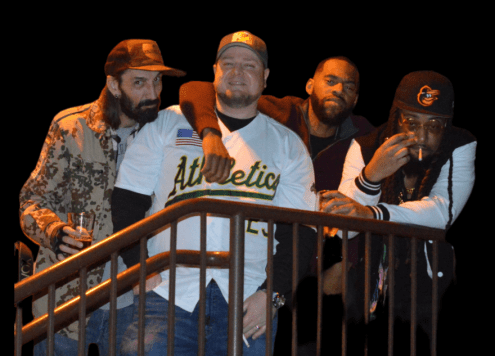
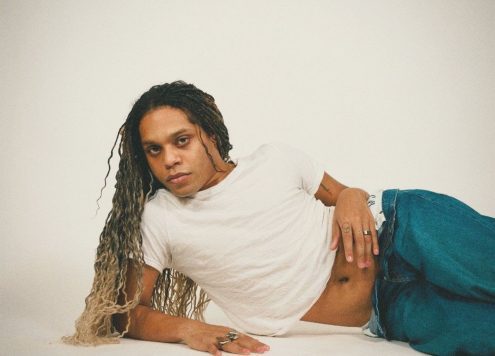
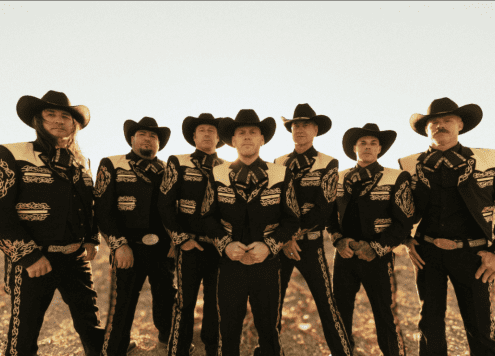
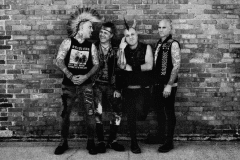
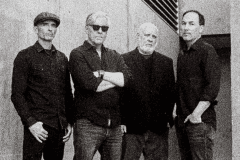
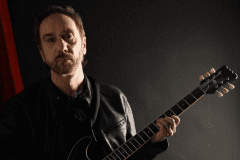
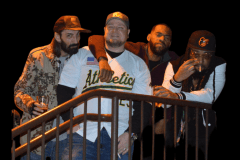

Social Media